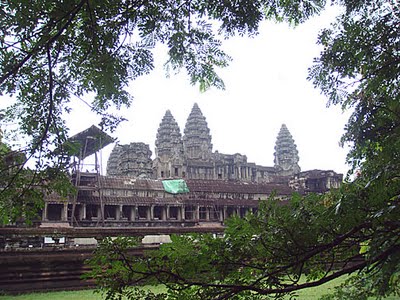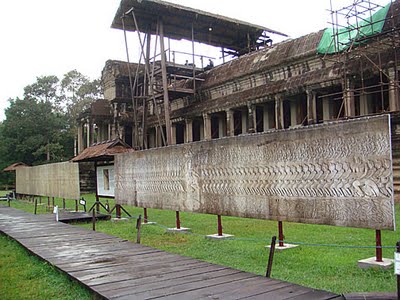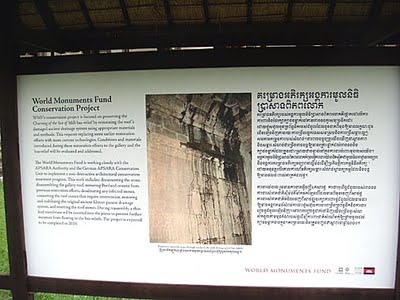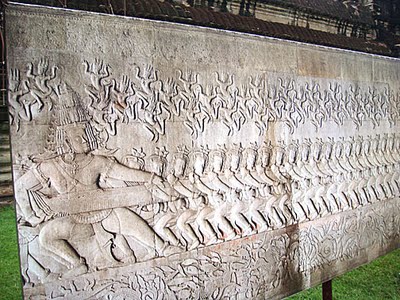Churning behind closed doors
Visitors to Angkor Wat at the moment are unable to see one of its crown jewels. The best of the bas-reliefs that cover the 800 metres of the outer wall of the central complex - The Churning of the Sea of Milk - is currently behind scaffolding and tarpaulins and you have to be content with large-scale photos of the relief and a description. The gallery ceiling and roof is leaking so its being replaced and the work, being undertaken by the World Monuments Fund, will be completed sometime in 2010. Previous restoration attempts haven't solved the problem so this new venture, alongwith the Apsara Authority and the German Apsara Conservation Unit, is doing the job properly and which will include inserting a thin lead membrane into the ceiling to keep out further moisture from affecting the reliefs. In the 1950s the EFEO team at Angkor Wat worked on the reliefs, disassembling the whole structure, installing a drainage system and reinforcing the walls. When civil war broke out in the 1970s the roof had not been put back so the bas-reliefs were exposed to the elements. In 1988, an Indian archaeology team resumed restoration work including reassembling the gallery roof. The Churning story, as you must know unless you've lived under a rock all your life, involves gods and demons pulling on a serpent which in turn produces amritar, the elixir of immortality from the Sea of Milk. But you knew that already.
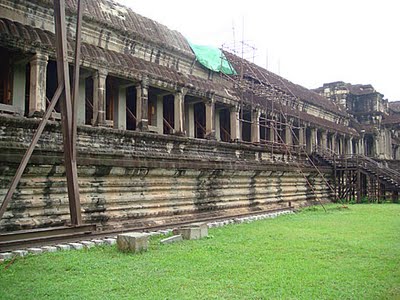 The southern section of the eat gallery which is out-of-bounds until next year. You can see where the water seepage effects the lighter stonework.
The southern section of the eat gallery which is out-of-bounds until next year. You can see where the water seepage effects the lighter stonework.
 The southern section of the eat gallery which is out-of-bounds until next year. You can see where the water seepage effects the lighter stonework.
The southern section of the eat gallery which is out-of-bounds until next year. You can see where the water seepage effects the lighter stonework.Labels: Angkor Wat, Churning of the Sea of Milk
